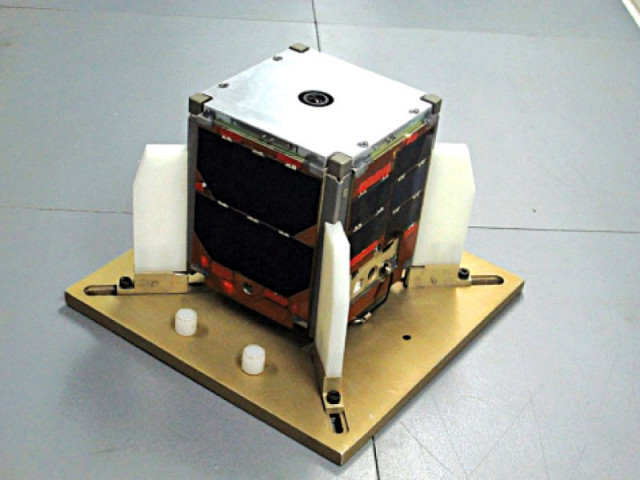The final frontier Pakistan launches first Cubesat satellite
The IST developed iCUBE-1 was launched from Russia.

ICUBE-1 has been launched in a polar orbit, 600 km above the surface of the Earth and is designed to take low resolution images of Earth and other objects in space.
Pakistan’s first Cubesat satellite, iCUBE-1, was launched just after noon on Thursday from the Yasny launch base in Russia on-board the Dnepr-1 launch vehicle.
A press release issued by Institute of Space Technology (IST) welcomed the launch as good news for higher education institutions, students and researchers of Pakistan that IST has etched its name among the foremost universities in the world who have built and launched a cubesat satellite.
This CUBESAT satellite will open up a wide vista of future experiments that can be carried on cubesats in the domain of imaging, microgravity, biology, nanotechnology, space dynamics, chemistry, space physics and various other fields. Cubesats can also provide a test bed for developing satellite constellations for specific applications.
IST Vice Chancellor Imran Rahman congratulated ‘Team IST’ for this great achievement. He specifically thanked Federal Minister for Planning, Development & Reforms Ahsan Iqbal, the HEC chairman and the National Space Agency chairman for their continuous encouragement, support and help in achieving this milestone.
ICUBE-1 has been launched in a polar orbit, 600 km above the surface of the Earth and is designed to take low resolution images of Earth and other objects in space. Initially, the 1.1 kg pico-satellite will transmit a continuous wave Morse code signal with the message “ICUBE-1 First CubeSat of Pakistan”.
The satellite has a volume of 10 cubic cm and houses several sensors to collect data for scientific purposes. ICUBE-1 is a fully autonomous satellite and is capable of maintaining its health via its on-board computer. The satellite will send its health data to ground stations and can also be controlled from the satellite tracking and control station at IST.
Published in The Express Tribune, November 22nd, 2013.



















COMMENTS
Comments are moderated and generally will be posted if they are on-topic and not abusive.
For more information, please see our Comments FAQ